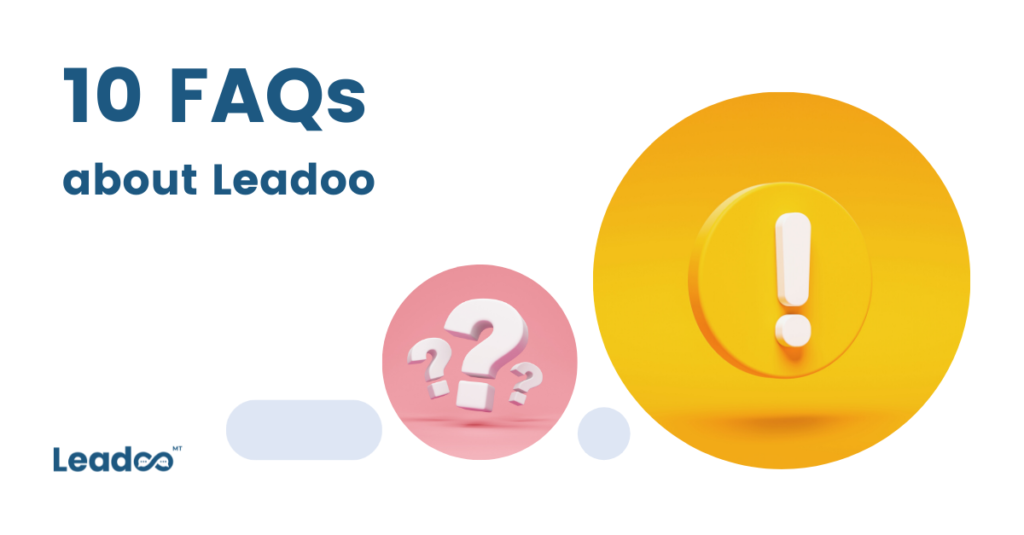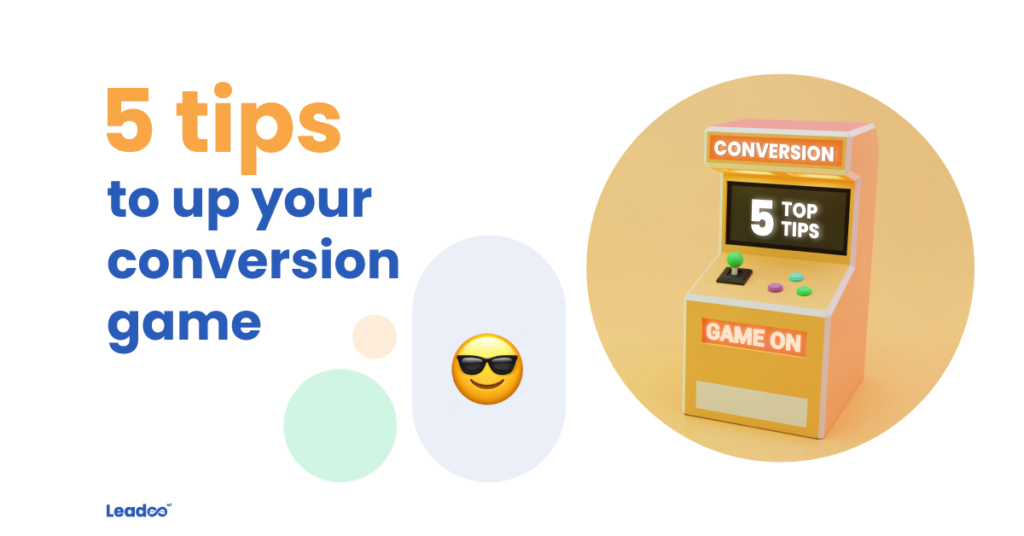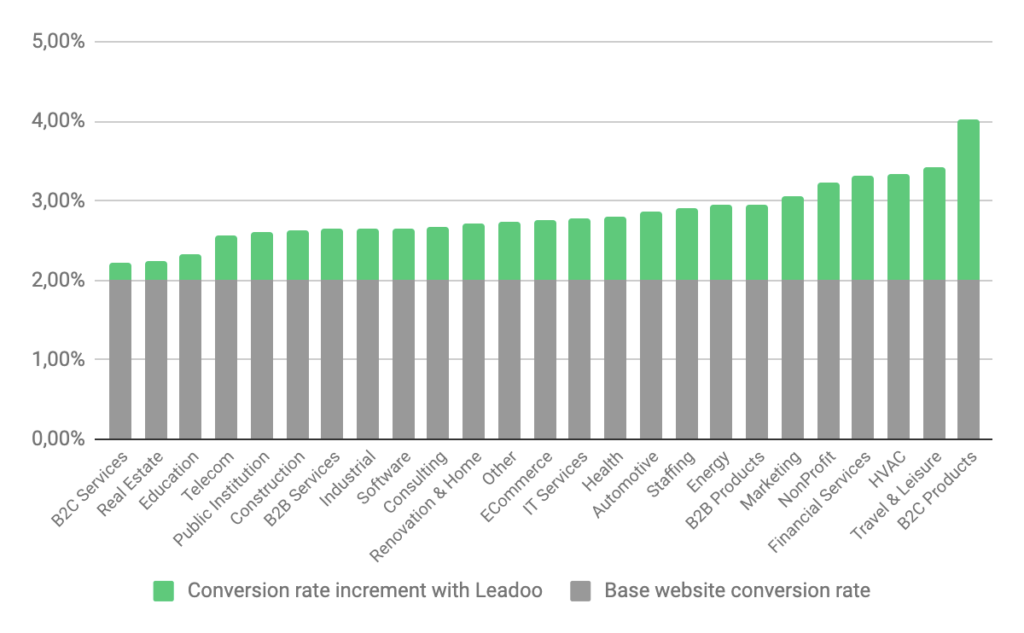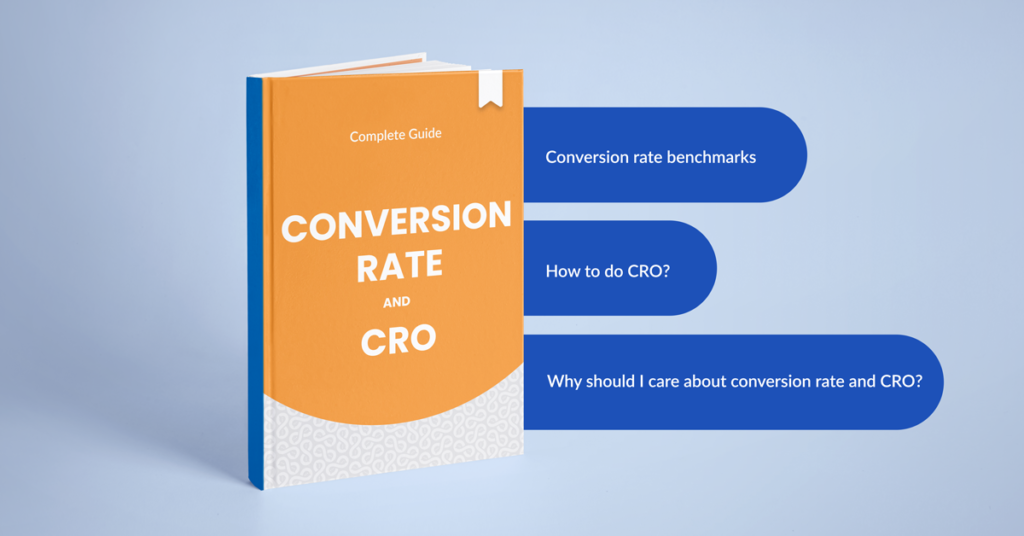
What’s your number one website related goal? — To increase monthly traffic?
Wrong.
Company websites aren’t (with the odd exception) built to provide masses of people a place to hang out. Rather than traffic, you should be focusing on conversions and conversion rate. The website should be a sales engine that generates revenue, and traffic alone doesn’t guarantee that.
In this complete guide, we cover everything you need to know about conversions, conversion rate, and CRO. So that you could make your website traffic count, and turn the website into the effective buyer’s journey touchpoint that it’s supposed to be.
We’ll cover the following topics and more – if you have a question about conversions, don’t hesitate to get in touch!
Table of Contents
Conversions, conversion rate, and CRO explained
Let’s get on the same page first, by doing a quick recap on the definitions and meanings of key conversion terminology.
Conversion – A conversion is an action taken by website visitors that brings them closer to becoming a customer. Common conversion types include contact request, booked meeting, purchase, quotation request, webinar sign up, newsletter subscription, and more.
Conversion rate – Conversion rate is a metric that describes what percentage of website or landing page visitors completed a conversion. It provides critical insight to campaign and marketing performance.
CRO – CRO or conversion rate optimization is what you do to improve the website or landing page’s conversion rate. CRO often revolves around agile experimentation, for instance A/B-testing.
More detailed explanations in the article: What is conversion, conversion rate, and CRO?
A list of common conversion types
Not all prospects are equally ready to buy. That’s why it makes sense to provide multiple conversion types that require a different level of commitment.
Here’s a list of common conversion types:
- Request for quotation
- Contact request
- Demo request
- Purchase / order
- Content download
- Form submission
- Newsletter subscription
- Event / webinar sign up
- CTA click
Why should I care about conversion rate and CRO?
Conversion rate matters because it largely defines the success of your marketing activities. With a low conversion rate, much of the effort you put into campaigns will go to waste.
Pouring money into ads is easy. Getting more traffic to your website with ads is easy. The easy things rarely have the biggest impact.
By focusing on CRO (conversion rate optimization), you will have a broader impact on the results of all your marketing activities. When you’re able to convert more, it will also make more sense to drive more traffic to the website.
In practice, CRO helps you to acquire new customers and get more repeat purchases from existing ones. It also helps improve your return on ad spend (ROAS) and drag down customer acquisition costs (CAC).
Conversion KPIs – how to measure conversion performance
Conversions are at the core of results-focused marketing, which means that you want to track your performance by following certain KPIs.
Here’s a list of central conversion KPIs:
- Total number of conversions (for a page or campaign)
- Conversion rate (%)
- CPA (cost per acquisition)
- Conversion value
- Conversion ROI
- Sales funnel metrics
- Revenue
Find examples with calculations in this article: Conversion KPIs – How to Measure Conversion Performance.
How to calculate conversion KPIs
Conversion rate (%)
To calculate conversion rate, you need to know the number of conversions and the number of visitors on the pages of interest.

Cost per acquisition (CPA)
To calculate CPA (for conversions), you need to know the number of conversions from the campaign of interest, as well as how much money you spent on the campaign.

Conversion value
Conversion value is an estimation about (1) how likely it is that a conversion will turn into a purchase or customer relationship, and (2) what the purchase or customer relationship will be worth on average.
Businesses need to consider different metrics to determine conversion value. These depend on the operating model and the desired accuracy of the calculation. Hence, we cannot provide an exact formula. Read more in this article.
Conversion ROI
To calculate conversion ROI, you need to know the value and cost of your conversions. Make more detailed calculations by focusing on conversions from a certain campaign, channel or target audience.

Sales funnel metrics
Sales funnel metrics, like lead-to-customer rate and average deal value, provide additional insights to the performance of marketing and sales.
To find out your lead-to-customer rate, you simply need to divide the number of purchases or deals with the number of leads.
For average deal value, add up all deals of interest, and divide that by the number of deals in the calculation.
Revenue
Ultimately, conversions should show in your revenue. Calculate the revenue generated from a conversion campaign, by multiplying conversion value with the number of conversions.
Alternatively, you can follow up on the conversions and leads in your CRM as they progress and become customers.
How to do CRO?
Conversion rate optimization focuses primarily on improving the UX (user experience) of websites and landing pages. A commonly used CRO method is A/B-testing (aka split-testing). This technique compares the performance of two (or more) versions of a chosen variable.
Who should do CRO?
CRO is for all companies that wish to support sales and generate concrete results from their website. Can you think of a firm that isn’t included? Me neither.
A common misconception is, that CRO is only for e-commerce. But, a conversion can be so many other things besides a purchase from an online store.
Especially in B2B, top of the funnel conversions can play a huge role in securing future pipeline. And most B2B companies can still capture hard conversions like quotation requests on the side.
CRO really is for every company that has a website and some traffic.
What can I optimize to improve conversion rate?
Here’s a list of common things you can tweak to improve conversion rate.
- Website layout
- Website content
- Design elements
- CTA style
- CTA placement
- Chatbot conversation
- Contact form fields
- Ad copy
- Ad targeting
On the other hand, several actions and ignorance can destroy your conversion rate. Read about common conversion rate pitfalls in this article.
CRO process outline
CRO focuses on agile experimentation around variables like the ones listed above. Here’s a rough outline of how to run CRO experiments as A/B-tests.
- Make sure you are tracking conversions correctly
- Form a hypothesis about a problem you’re trying to solve
- Select a method for testing the hypothesis
- Prepare versions A and B
- Run the experiment and track the performance over time
- End the experiment once you can make a confident conclusion
- Implement findings to your marketing
Even though there are multiple steps in the process, CRO doesn’t have to be a heavy process. On the contrary, moving fast is often key, and you may be running several experiments at once.
CRO tactics to experiment
There’s so much you could do to improve conversion rate, that it can be difficult to pick a project and go for it. We’ve listed a few powerful CRO tactics in this article.
Get your conversion rate soaring by testing one of those first.
Conversion rate benchmarks
Comparing conversion rates is tricky business, because conversion rate is a highly contextual metric. Countless variables, like industry, website design, content, UX, CTA style, conversion type and brand trust affect conversion rates.
You should always take reported conversion rate averages and benchmarks with a pinch of salt. They merely provide a broad estimate of what you can expect to achieve, or what you should at least aim for.
The chart below shows median landing page conversion rates by industry.
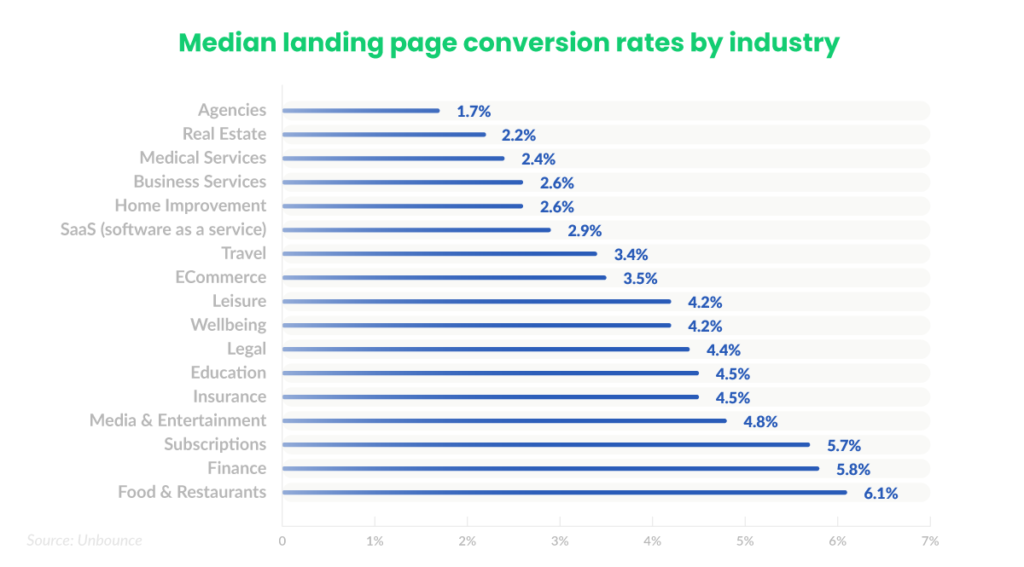
See a comprehensive list of conversion rate benchmarks in this article.
